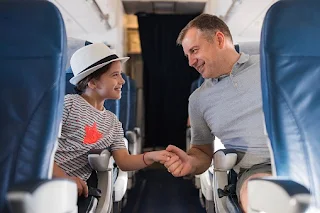SAFE-TRAVEL-TIPS:
SAFE TRAVEL TIPS:
Dave Ikiedei Asei
04/01/2023
The times we are living is a dangerous period, as such everyone must take extra care and make deliberate plans before starting any journey. All over the word, travel risk is increasing by the day, so one should make careful plans before starting a journey no matter the destination.
I think that the following tips will help everyone making a journey even going to the office, supermarkets or attending social events that needs using vehicles or even trekking on foot.
BELOW ARE SOME SAFE TRAVEL TIPS THAT COULD HELP YOU WHEN TRAVELING
- Research your destination before you go. This will help you understand any potential risks and take appropriate precautions.
- Keep copies of important documents, such as your passport and travel insurance, in a safe place, and leave a copy with a trusted friend or family member.
- Use caution when using ATMs, and be aware of your surroundings when withdrawing cash.
- Be aware of your surroundings at all times, and trust your instincts. If you feel unsafe, remove yourself from the situation.
- Keep your valuables close to you and secure, and consider using a money belt or hidden wallet to store cash and other important items.
- Stay in well-lit and populated areas, and avoid walking alone at night.
- Follow local laws and customs, and be respectful of the culture and people of your destination.
- Carry a charged phone and let someone know your itinerary and contact information.
- Use caution when using public transportation and consider purchasing travel insurance to protect against any unexpected issues that may arise.
- Stay healthy by washing your hands frequently, avoiding close contact with sick people, and following any travel health recommendations from the Centers for Disease Control and Prevention (CDC).
MORE SAFE TRAVEL TIPS
- Avoid carrying large amounts of cash, and instead use a credit or debit card whenever possible.
- Protect your personal information by using secure Wi-Fi connections and not sharing your personal or financial information with strangers.
- Keep your luggage in sight at all times, and consider using a luggage lock to secure it.
- Keep a low profile and avoid drawing unnecessary attention to yourself, especially in unfamiliar or high-risk areas.
- Familiarize yourself with local emergency services and know how to contact them in case of an emergency.
- Consider purchasing travel insurance to protect against trip cancellations, lost or stolen luggage, and other unexpected issues.
- Stay informed about the latest travel advisories and warnings from the U.S. Department of State and other reliable sources.
- Use common sense and be aware of your surroundings at all times. If something seems too good to be true, it probably is.
- Don't leave your drinks unattended, and be mindful of accepting drinks from strangers, as this can put you at risk of being drugged.
- Stay healthy by practicing good hygiene, such as washing your hands frequently, and following any travel health recommendations from the Centers for Disease Control and Prevention (CDC).
TRAVEL TIPS WHEN YOU ARE USING YOUR OWN VEHICLE
- Plan your route in advance and allow extra time for unexpected delays.
- Keep your vehicle well-maintained, with good tires, brakes, and fluids, to reduce the risk of breakdowns.
- Avoid distracted driving, such as texting or using your phone while behind the wheel.
- Follow all traffic laws and speed limits, and be alert and attentive to your surroundings at all times.
- Use caution when driving in unfamiliar areas, and consider using a GPS navigation system to help you find your way.
- Keep your vehicle locked and all valuables out of sight when not in use.
- If you are driving in a remote area, let someone know your itinerary and estimated arrival time, and consider carrying a satellite phone or other emergency communication device.
- Consider purchasing roadside assistance coverage to protect against unexpected issues such as flat tires or dead batteries.
- Don't drive under the influence of alcohol or drugs, and be sure to get plenty of rest before setting out on a long road trip.
- Keep a first aid kit and other emergency supplies in your vehicle, in case of an unexpected emergency.
TRAVEL TIPS WHEN YOU ARE USING PUBLIC TRANSPORT
When you decides to travel by public transport, remember the following:
- Plan your route in advance and allow extra time for unexpected delays.
- Familiarize yourself with the transportation system, including the location of stops, transfers, and ticketing.
- Be aware of your surroundings and keep an eye on your belongings at all times.
- Keep valuables close to you and secure, and consider using a money belt or hidden wallet to store cash and other important items.
- Follow any posted safety instructions or announcements, and be mindful of your surroundings at all times.
- Avoid using public transportation late at night or in areas that are known to be unsafe.
- Consider purchasing a transportation pass or ticket in advance to save time and reduce the need to handle cash.
- If you are traveling with luggage, be mindful of its size and weight, and keep it close to you at all times.
- Use caution when using public restrooms and follow any posted health and safety guidelines.
- If you are traveling internationally, be aware of any cultural differences or language barriers that may impact your travel experience.
CONCLUSION ON SAFE TRAVEL TIPS
To summarize, here are some key points to remember when it comes to traveling safely:
- Research your destination and be aware of any potential risks or dangers.
- Keep copies of important documents and leave a copy with a trusted friend or family member.
- Use caution when using ATMs and be aware of your surroundings.
- Trust your instincts and remove yourself from situations that feel unsafe.
- Keep your valuables secure and stay in well-lit and populated areas.
- Follow local laws and customs, and be respectful of the culture and people of your destination.
- Carry a charged phone and let someone know your itinerary and contact information.
- Use caution when using public transportation and consider purchasing travel insurance.
- Practice good hygiene and follow any travel health recommendations from the Centers for Disease Control and Prevention (CDC).
- Plan your route in advance and allow extra time for unexpected delays when driving.
By following these tips, you can increase your chances of having a safe and enjoyable trip.






Comments